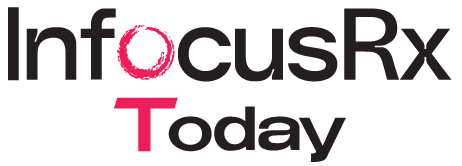Try stretching an elastic band; it comes back to its original form. Try stretching it hard, a time would come when the spring would not take its original form and remain permanently stretched. This is because of the force applied is more than what it can handle. Similarly, our heart muscle, if stretched beyond its capacity, becomes permanently stretched, and is incapable of contracting back. For the heart to pump blood to the organs, it should contract with force; if it loses the ability to contract, it may not be able to pump blood effectively. As a result, the body organs become deprived of oxygen and nutrients. This condition is called heart failure.
Congestive heart failure- The basics
Congestive heart failure is a condition where the organs of the body are unable to receive enough blood from the heart, due to the inability of the heart to pump blood. This condition occurs due to narrowed blood vessels that are unable to supply enough blood to the heart also known as coronary artery disease, high blood pressure, due to scar tissue formed from a previous heart attack, defects of heart at birth also known as congenital heart disease, and disease of the heart valve and muscle.
If congestive heart failure occurs on the right side of the heart, then it is called as right sided failure, and if it occurs on the left side of the heart, it is called as left sided failure. In most of the cases, failure occurs on both sides. When the heart is unable to pump blood out of the heart, then it is known as systolic failure and when the blood does not fill the heart due to stiffness of heart muscle, it is known as diastolic failure. Due to this inability of the heart to pump oxygen laden blood to various organs, fluid builds up in the organs like liver, arms, legs, lungs, kidney and gastrointestinal tract which results in their inability to work well. This accumulation of fluid in organs is known as edema.
Symptoms of congestive heart failure include swelling of abdomen, legs, ankles, breathing difficulty when lying down due to edema or fluid accumulation, palpitations, indigestion, appetite loss, sleep disorders, general weakness, feeling faint, vomiting, decreased urination ,decrease in concentration and sweating during any physical activity in the case of children.
Diagnosing congestive heart failure
If you think that you have the symptoms of congestive heart failure, consult your doctor immediately. The doctor performs various tests for confirmation of congestive heart failure. Blood tests are conducted to check the blood count and also to check the function of the kidney and liver. The Chest x ray is taken to see if there is any enlargement of heart and lungs due to accumulation of fluid. The electrocardiograph or E.C.G is taken by the doctor in order to study the heart beat. It is a painless procedure wherein electrodes are fixed to certain points in the chest which records the electrical activity of the heart. When the tests are positive for congestive heart failure, then the doctor chalks out a treatment plan.
Self care for Congestive heart failure
Apart from taking the medications prescribed by your doctor properly, you must monitor yourself carefully. You must check your weight often, preferably without any clothes on, to check if there is any weight gain because any fluid accumulation in the body will increase your weight. You must also lessen the salt in your foods as salt aids in water retention. When you are buying groceries check only for salt free, sodium free , unsalted foods. If you are unable to eat salt less food then you can try adding ginger, lemon and pepper in your foods for taste. Foods rich in sodium like cured meats, hot dogs, salami, ham, nuts, tomatoes, pickles, and cheese should be strictly avoided as sodium increases water retention in the body.
Habits like smoking must be given up as the nicotine in the smoke aids in narrowing blood vessels supplying blood to the heart that result in serious complications. Alcohol and caffeine consumption should be limited.
You must make exercise a part of your daily life. Consult your doctor before taking up any exercise regimen. You must never exercise if you are feeling sick or exhausted. Taking breaks and resting after any physical activity is very important for a congestive cardiac failure patient.
A good way to decrease the swelling of your legs due to fluid accumulation is to keep your legs elevated, perhaps on a pillow and rest. It is essential for you to join the cardiac rehabilitation programs that are conducted by the hospitals itself where counseling is given and stress management techniques are taught to the patient.
Calling your doctor
When you find symptoms like swelling in the limbs, breathing problems, weakness and increase in sputum and cough production, then immediately contact the health care team. If you have severe pain in the chest, feeling faint, nausea, and vomiting, don’t hesitate to rush to the emergency room.
Ensuring a Safe heart
When you take steps to keep your heart healthy, you are not only doing it for yourself but also for the entire family and friends that care about your well being. Heart disease can be life threatening but by taking all the necessary steps towards a healthy heart, you can lead a happy and fulfilling life. The safety of your heart is in your hands.



